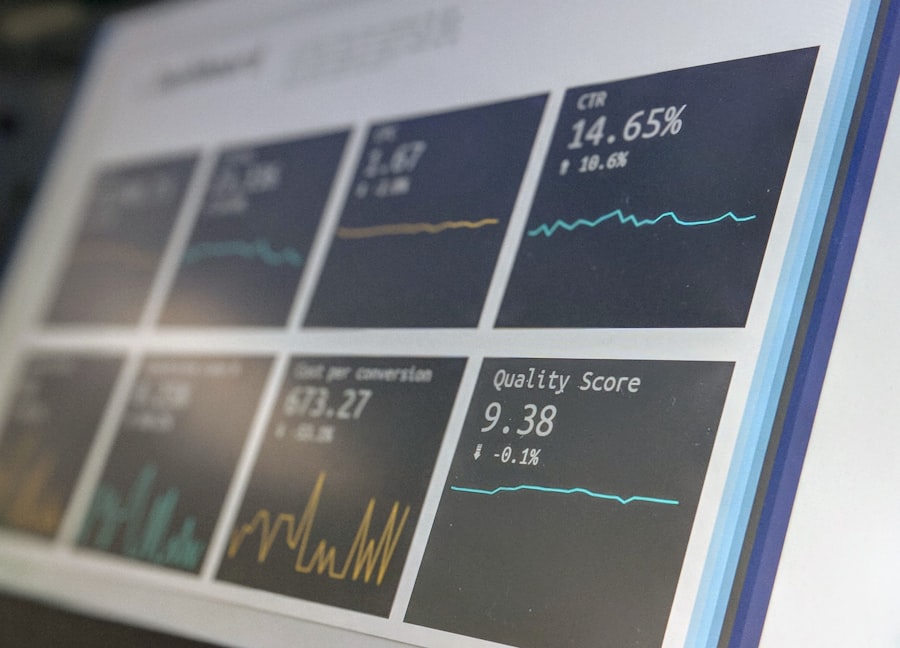AI-powered automation utilizes artificial intelligence technology to automate tasks and processes across various industries, including sales and productivity. This technology enables machines to perform complex tasks traditionally requiring human intelligence, such as decision-making, problem-solving, and language comprehension. In sales and productivity applications, AI-powered automation can enhance lead generation, customer relationship management, sales forecasting, and performance analysis.
The foundation of AI-powered automation lies in advanced algorithms and machine learning techniques that analyze data, identify patterns, and generate predictions. By implementing AI technology, businesses can optimize their sales processes, resulting in improved efficiency, increased productivity, higher sales volumes, and enhanced customer satisfaction. Furthermore, AI-powered automation provides valuable insights into customer behavior and market trends, allowing businesses to make data-driven decisions and maintain a competitive edge in their respective markets.
Key Takeaways
- AI-powered automation uses artificial intelligence to streamline and optimize repetitive tasks in sales processes.
- The benefits of AI-powered automation for sales and productivity include increased efficiency, improved accuracy, and enhanced customer experience.
- Implementing AI-powered automation in sales processes involves identifying key areas for automation, selecting the right AI tools, and providing proper training for employees.
- Overcoming challenges in adopting AI-powered automation requires addressing concerns about job displacement, ensuring data privacy and security, and managing resistance to change.
- Case studies of successful implementation of AI-powered automation demonstrate significant improvements in sales performance, customer satisfaction, and overall productivity.
The Benefits of AI-Powered Automation for Sales and Productivity
Increased Efficiency and Productivity
AI-powered automation can significantly increase the efficiency of sales processes by automating repetitive tasks, such as data entry, lead scoring, and email communication. This allows sales teams to focus on more strategic and high-value activities, such as building relationships with prospects and closing deals.
Improved Sales Forecasting and Performance Analysis
As a result, businesses can achieve higher sales volumes and revenue growth while reducing the time and effort required to manage sales operations. Furthermore, AI-powered automation can improve the accuracy and effectiveness of sales forecasting and performance analysis. By analyzing large volumes of data, AI algorithms can identify trends and patterns that may not be apparent to human analysts.
Personalized Sales and Marketing Efforts
This enables businesses to make more accurate sales forecasts and identify opportunities for improvement in their sales processes. Additionally, AI-powered automation can help businesses personalize their sales and marketing efforts by analyzing customer data and providing insights into individual preferences and behaviors. This can lead to higher conversion rates and improved customer satisfaction.
Implementing AI-Powered Automation in Sales Processes

The successful implementation of AI-powered automation in sales processes requires careful planning and strategic execution. Firstly, businesses need to identify the specific areas of their sales processes that can benefit from automation. This may include lead generation, lead scoring, customer relationship management, sales forecasting, and performance analysis.
Once the areas for automation have been identified, businesses can then evaluate the available AI-powered automation solutions and choose the ones that best fit their needs and objectives. Next, businesses need to ensure that they have access to the necessary data to train and optimize their AI-powered automation systems. This may involve integrating data from various sources, such as CRM systems, marketing platforms, and external databases.
By leveraging a wide range of data sources, businesses can provide their AI algorithms with the information they need to make accurate predictions and recommendations. Additionally, businesses need to invest in training their sales teams on how to use AI-powered automation tools effectively. This may involve providing training on how to interpret AI-generated insights, how to leverage automation for personalized sales and marketing efforts, and how to integrate AI-powered automation into their daily workflows.
Overcoming Challenges in Adopting AI-Powered Automation
While the adoption of AI-powered automation in sales processes offers numerous benefits, businesses may face several challenges when implementing this technology. One of the main challenges is the integration of AI-powered automation solutions with existing sales systems and processes. Businesses may need to invest in custom development or third-party integrations to ensure that their AI-powered automation tools can seamlessly communicate with their CRM systems, marketing platforms, and other sales tools.
Another challenge is the need for high-quality data to train and optimize AI-powered automation systems. Businesses may need to invest in data cleansing and enrichment efforts to ensure that their AI algorithms have access to accurate and relevant data. Additionally, businesses need to address concerns related to data privacy and security when implementing AI-powered automation in sales processes.
This may involve implementing robust data protection measures and ensuring compliance with relevant regulations, such as GDPR.
Case Studies: Successful Implementation of AI-Powered Automation
Several businesses have successfully implemented AI-powered automation in their sales processes, leading to significant improvements in productivity and sales performance. For example, a leading e-commerce company used AI-powered automation to personalize its marketing efforts based on customer behavior and preferences. By analyzing customer data from various sources, including website interactions, purchase history, and social media activity, the company was able to deliver targeted marketing messages that resonated with individual customers.
This led to a 20% increase in conversion rates and a 15% increase in average order value. In another case study, a global technology company implemented AI-powered automation to streamline its lead scoring process. By analyzing historical sales data and customer interactions, the company’s AI algorithms were able to identify high-potential leads with a high degree of accuracy.
This enabled the sales team to prioritize their efforts on leads that were most likely to convert, leading to a 30% increase in lead conversion rates and a 25% increase in overall sales productivity.
Future Trends in AI-Powered Automation for Sales and Productivity

Advancements in AI Technology
We can expect to see continued advancements in AI technology, leading to more sophisticated algorithms and machine learning models that can provide even more accurate predictions and recommendations. This will enable businesses to further optimize their sales processes and deliver more personalized experiences to their customers.
Integration with Emerging Technologies
Additionally, we can expect to see increased integration of AI-powered automation with other emerging technologies, such as natural language processing (NLP) and chatbots. This will enable businesses to automate more complex tasks, such as customer support and sales communication, using AI-powered systems that can understand and respond to natural language inputs.
Emphasis on Ethical AI Practices
As businesses continue to leverage AI technology for automation, there will be an increased focus on ensuring that AI algorithms are fair, transparent, and accountable. This will involve implementing measures to prevent bias in AI decision-making processes and providing transparency into how AI-powered automation systems operate.
The Impact of AI-Powered Automation on Sales and Productivity
In conclusion, the adoption of AI-powered automation in sales processes offers significant potential for improving productivity and driving sales performance. By leveraging advanced algorithms and machine learning techniques, businesses can automate repetitive tasks, gain valuable insights into customer behavior, and make more informed decisions. While there are challenges associated with implementing AI-powered automation, businesses that successfully adopt this technology stand to gain a competitive advantage in today’s fast-paced business environment.
As we look towards the future, it is clear that AI-powered automation will continue to play a crucial role in shaping the sales and productivity landscape. With ongoing advancements in AI technology and increasing integration with other emerging technologies, businesses have the opportunity to further optimize their sales processes and deliver more personalized experiences to their customers. By embracing ethical AI practices and addressing challenges related to data integration and security, businesses can harness the full potential of AI-powered automation to drive growth and success in the years to come.
AI-Powered Automation: The Key to Higher Sales and Productivity has been a game-changer for many businesses, as evidenced by the success stories featured on Marmlax’s website. These success stories highlight the tangible benefits that AI-powered automation has brought to various industries, from increased sales to improved productivity. It’s clear that AI applications, particularly in business, have the potential to revolutionize the way companies operate, as discussed in more detail on Marmlax’s business applications page.
FAQs
What is AI-powered automation?
AI-powered automation refers to the use of artificial intelligence (AI) technology to automate tasks and processes in various industries. This technology can analyze data, make decisions, and perform actions without human intervention, leading to increased efficiency and productivity.
How can AI-powered automation benefit sales and productivity?
AI-powered automation can benefit sales and productivity by streamlining repetitive tasks, such as data entry and lead qualification, allowing sales teams to focus on more strategic activities. It can also provide valuable insights and predictions based on data analysis, helping businesses make informed decisions and improve their sales strategies.
What are some examples of AI-powered automation in sales and productivity?
Examples of AI-powered automation in sales and productivity include AI chatbots for customer service, predictive analytics for sales forecasting, and automated email marketing campaigns. These tools can help businesses engage with customers more effectively, identify potential leads, and optimize their sales processes.
What are the potential challenges of implementing AI-powered automation in sales and productivity?
Some potential challenges of implementing AI-powered automation in sales and productivity include the initial cost of investment, the need for training and integration with existing systems, and concerns about data privacy and security. It is important for businesses to carefully consider these factors and develop a strategic plan for successful implementation.





